- PROJECT Partners
The 2ISECAPconsortium is formed by a complementary mix of experienced European institutions from the area of energy, education, spatial planning, regional and local public administration and consultancy.
The Consortium in total includes 17 partner organisations from 8 countries.
Greece

Business and Project Management S.A. (BPM SA)
PROJECT COORDINATOR
BPM S.A. is an Athens based boutique business consulting firm. BPM S.A. was founded in 1988 and since then it successfully offers its services and solutions to national and international clients.
BPM addresses its clients’ needs related to business, people, funding, organisation and society. Moreover, through the cooperation with selected business partners, BPM enhances its services portfolio and offers integrated solutions to its clients.
BPM provides high quality, value adding, customized solutions aligned with internationally recognized best practices. BPM’s focus is in:
- Business: BPM focuses on developing and running efficient businesses and operations by creating value through business development, planning the way forward and ensuring effective implementation and risk management.
- People: BPM aims at developing people and ensuring resilience and productivity by engaging talented, motivated and committed people, enhancing and developing their skills and ensuring rightsizing and workplace excellence.
- Funding: BPM supports its clients to secure the necessary financial resources by exploiting all possible funding opportunities, as well as by engaging private investors and handling mandates. BPM participates in projects funded by the European Commission as a partner or project manager.
- Organization: BPM specializes in building lean and effective organizations by designing efficient structures aligned with the business strategy, incorporating growth and change in the organization’s business model and continuously evaluating and improving performance.
- Society: BPM supports the creation of sustainable social organizations, networks and interfaces by optimizing the organizations’ sustainability, initiatives and social impact by providing innovative solutions to social economy challenges.
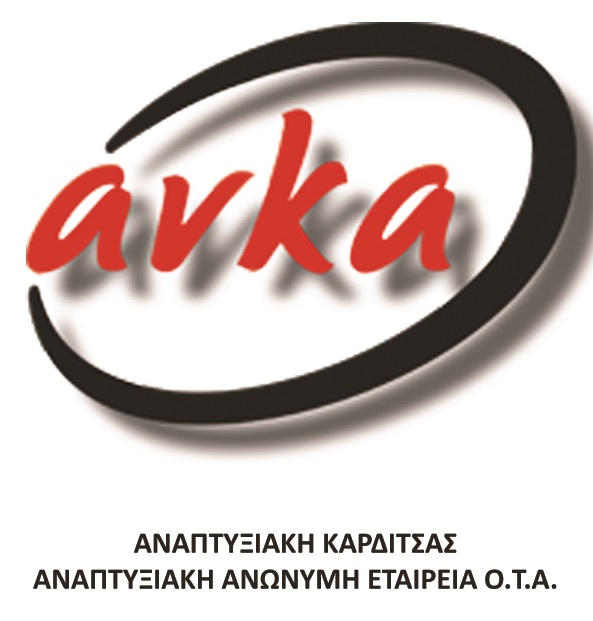
DEVELOPMENT AGENCY OF KARDITSA (ANKA)
GREECE
The Development Agency of Karditsa, in short AN.KA, represents a necessary tool at the disposal of the Prefecture and the wider area. The leaders of local authorities had the wisdom to set it up on 1989. Since then, AN.KA has accumulated great expertise in various fields, which has been proved valuable in any development effort of our area. Apart from providing specialized technical support to public, self-governing, collaborative, social, private bodies and companies, AN.KA serves two very important social and deeply political procedures: citizens and bodies’ awareness as well as support to open social debate among both citizens and several groups of interest on any issue related directly or indirectly with the development of our area. This service is organised and delivered in a scientific way.
The Company’s main objective is to help develop, manage, maintain, protect and make the best use of natural resources, introduce innovation and entrepreneurship in the productive system; introduce and increase the use of renewable energy sources; support and develop new collective structures, contribute in social development and the general development of Karditsa and other areas in Greece, if requested.
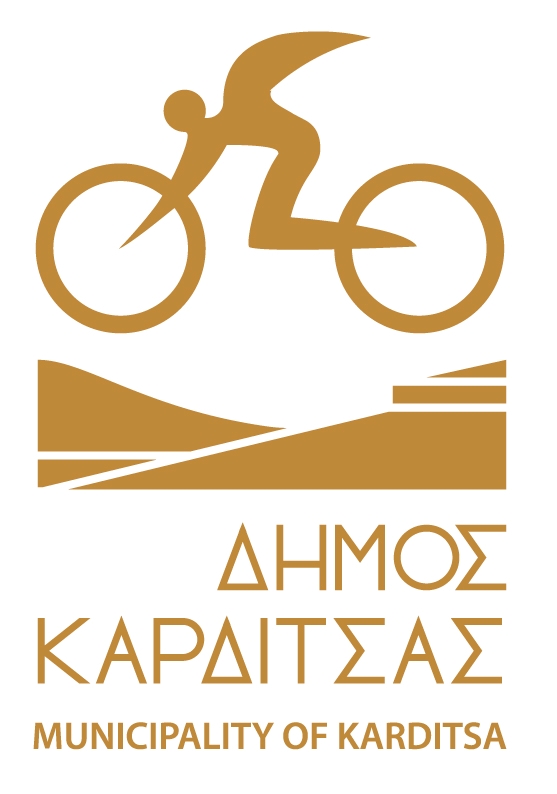
MUNICIPALITY OF KARDITSA (KARDITSA)
GREECE
Municipality of Karditsa, is a Local Government Authority, located in Karditsa, Thessaly, Greece. Karditsa, is a city in western Thessaly in mainland Greece. The city of Karditsa has 55,000 residents and is the capital of an agricultural region, with 150,000 residents. Karditsa is one of the most bike-friendly cities in Greece, with an extensive network of bicycle paths, approximately 20 km. From March 2013 there is also a bike sharing system for residents and for tourists. Approximately 40% of all the city transportation, according to the National Technical University of Athens, is done by bicycles. A remarkable characteristic is the 3.5 average bikes per family.
The Municipality won the “EUROPEAN MOBILITY WEEK” Award 2019 (small cities category), awarded mainly for the promotional materials and partnerships to support sustainable mobility
Municipality of Karditsa participates in several networks, such as: Network routes to sustainable mobility, Network routes with lakes, Digital cities of Central Greece. Municipality of Karditsa operates as a typical public organization, occupying about 360 employees full time, is legally represented by the Mayor and is governed by a board of municipal councillors.
A specialized operational Unit- Department of Development planning, Information and Transparency- is dedicated to find resources and implementation of European, national or other programs, for the further development of the municipality and raise awareness.

ENERGY ADVISORS ENSA PC
GREECE
ENSA (Energy Services Advisors) PC was established in 2017 with primary aim the provision of high quality energy service consulting. ENSA PC consists of a team of energy experts, with experience in energy efficiency policy and technical solutions. Based on their European and international experience they decided to fill in an important gap in the field of energy services consulting. The interdisciplinary team of ENSA PC has implemented or was involved in national energy design projects, as well as in technical energy efficiency projects.
ENSA PC operates in the energy services sector offering integrated specialized consulting, techno-economic and technical services related to energy savings, energy efficiency and Greenhouse Gas management strategies, while promoting innovative strategic solutions aiming at sustainable development and “green” technologies.
The main categories of the provided services by ENSA PC include:
- Technical support within the framework of the Energy Efficiency Obligation Scheme.
- Design, implementation, measurement and verification of energy efficiency measures.
- Design of behavioral measures to improve energy efficiency.
- Holistic energy services in energy providers.
- Conduction of energy audits and energy inspections of buildings.
- Development of Energy Management Systems (ISO 50001).
- Conduction of scientific studies and projects at national and international level on RES, energy efficiency and climate change policies and technologies.
- Evaluation and exploitation of available financial instruments for the implementation of RES, energy saving and climate change projects.
- Elaboration of techno-economic studies for the evaluation of energy and environmental projects.
- Conduction of technical studies of electromechanical projects.
- Development of information systems and provision of advanced IT services.
- Research in the fields of energy efficiency, RES, climate change and IT systems.
- Operation as Energy Services Company (ESCO) as defined in Article 3 of Law 3885/2010.
- Demand response and balancing services
SPAIN

REGIONAL GOVERNMENT OF JUNTA CASTILLA Y LEON (JCYL)
SPAIN
Regional government of the Spanish Region Castilla y León (largest of 17 regions, 94,222 km2; 6th most populated, 2,4M), established as an autonomous government within the Spanish constitutional framework, with full competence on issues such as regional planning and housing policies, and legal, supervisory and coordination competence on local public bodies and activities such as urban planning and local development of housing policies.
Junta de Castilla y León, regarding energy issues, has a trend in the recent years of fostering the exploitation of RES in the region and improving energy efficiency through the plans and programs of their regional energy agency. At the same time, concerning spatial planning issues, the regional government has been focused on urban regeneration and sustainable development of urban spaces by supporting local authorities in defining action plans and policies.
Through the INTENSSS-PA project, Junta de Castilla y León successfully established and operated a Regional Living Lab which initiated a path of working in holistic planning and sustainable energy actions which can be continued and enhanced with the 2ISECAP project by improving the SEAPs in the cities that already have them and promoting their elaboration in the other provinces, while this new project takes advantage of the expertise in coordination and management of the regional government and the great network and RLL already in place.
Therefore, Castilla y León secure the capacity of 2ISECAP to actually perform a Living Lab working environment and combine efforts with the municipalities to assess and improve their Sustainable Energy Action Plans.

UNIVERSITY OF VALLADOLID - INSTITUTO UNIVERSITARIO DE URBANISTICA (UVA IUU)
SPAIN
The Instituto Universitario de Urbanística (IUU) is a Research Centre of the University of Valladolid, rooted in its School of Architecture, whose specific purpose is to develop research, postgraduate teaching and lifelong education in the area of Urban and Regional Planning. It assumes an interdisciplinary perspective, which involves fields of knowledge such as Architecture, Geography, Law, History, Economics and all those are related to the analysis, designing, planning and construction of cities and territories.
Through its Lab, the IUU has a consolidated experience in advanced and applied research projects and works on spatial planning, in particular on urban and regional planning. At a European level, it has participated in the H2020 Research Project INTENSSS-PA, which focused on energy issues in their relationships to spatial planning and the socioeconomic landscape, and it has also collaborated in two projects that were framed in the Culture 2000 Program. Regarding the Spanish framework, the IUU is an experienced centre of consultancy in urban and regional studies and plans for public institutions and organisations. For instance, it has worked for the Spanish National Government (Ministry of Publics Works and Ministry of Housing), Regional Governments (specially, Castilla y León) and several municipalities.
Regarding postgraduate teaching, the IUU has a long experience in organising PhD programmes collaborating with several universities worldwide.
Furthermore, the IUU has for 25 years been the editor of a scientific journal, Ciudades (ISSN 1133-6579, ISSN-E 2445-3943), whose object is urbanism in a broad sense and which addresses the academic world as well as the citizenship interested in urban and territorial issues from various disciplines.
LEON CITY COUNCIL (LEON)
SPAIN
The city of Leon is one of the main provincial capitals in Castilla y León, an Spanish Objective 1 region in the European Union.
León is a two-thousand year old city, founded by the Romans, boasting many attractive features. Leon has a very rich cultural and built-up heritage of quite different periods and styles: The Gothic cathedral, the Romanesque Church of San Isidoro and the Renaissance San Marco’s Hostel are the main monuments in the city.
In demographic terms, León is a medium-sized city with a population close to 125,000 inhabitants, boasting a significant expansion throughout the 20th century. The municipality of León displays a complex structure in which the urban area together with minor suburban developments amount to a small agglomeration of almost 200,000 inhabitants for which the Local Authority must cater in terms of all services.
In 2015 the average age of the population was 46,65 years and it continues to grow, the population pyramid shows a clear problem of sustainability.
León is the only capital of Castile and León which urban morphology is linked to a “homogeneous urban widening (ensanche)”. This “widening (ensanche)” reports the economic vigor of the city in the early 20th century. Special mention may be made of the more than one million square meters of green spaces, distributed among big parks and small gardens, an invitation to the walk and the relaxation.
Current strategic planning includes:
- a City-wide strategy “León XXI21”, sustainable and integrated Urban development strategy
- EDUSI strategy – sustainable and integrated Urban development strategy- “north of the city- between tracks neighborhoods” (2017-2023).
- Global Covenant of Mayors for climate & energy (which implies several commitments, for instance that a SEAP and a baseline inventory of emissions will be developed)
SLOVENIA
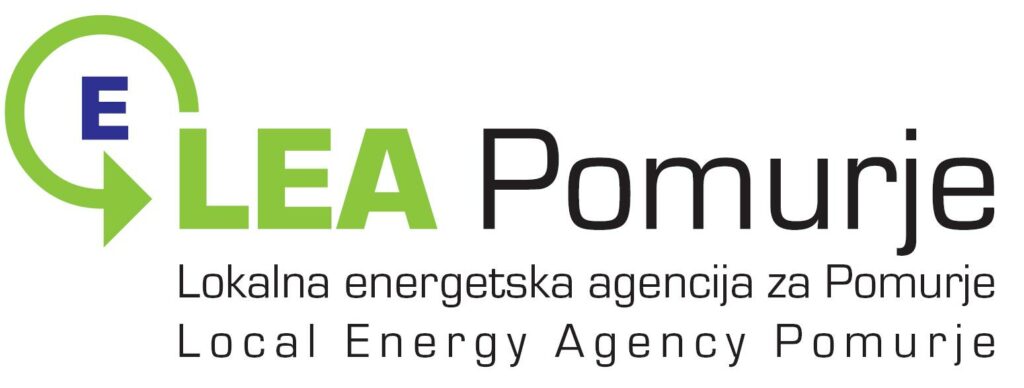
LOCAL ENERGY AGENCY POMURJE (LEAP)
SLOVENIA
Local energy agency Pomurje (LEA Pomurje) is a regional organisation that promotes and facilitates continuous improvement of energy efficiency and deployment of renewable energy sources in the Pomurje region.
The Agency was established in 2005 in the framework of an international consortium in the Intelligent Energy Europe Programme. The main step for the work at a national level in Slovenia was done in 2007 when we started to encouraged the establishment of the National Consortium of the Energy Agencies of Slovenia. Currently all energy agencies of Slovenia are included to the consortium. The support for the establishment and also for the work in the future LEAP gained with the signing of the letter of commitment from the Ministry of the Environment and Spatial Planning.
The basic guidelines of operation of activities are the promotion of renewable energy sources, efficient use of energy and environmental protection at all levels and tracking requirements and guidelines in international, national and regional level in the energy sector. LEA Pomurje increasingly realises the objective to become a key programming, implementing, negotiating and representative institution in the implementation of renewable energy sources (RES) and energy efficiency (RUE) and sustainable development in the region. The core work is the support of the 27 municipalities (entire Pomurje region) by EE & RES activities. LEA Pomurje has a strong cooperation with municipalities in Pomurje region. LEA Pomurje has a direct link in the current programme period to the Development council of the Pomurje region and Council of Pomurje development region. LEA Pomurje is a member of the “Regional Development Network of the Pomurje Region” created and managed by Regional development agency for Pomurje region. LEA Pomurje has become the first Local Energy Agency in Slovenia functioning as a Covenant Supporter actively supporting the municipalities of the Pomurje region in relation to the Covenant of Mayors initiative.
Activities and projects, which were and will be implemented, can be roughly placed into three groups as follows:
- Preparation project of strategy documents on the energy fields in Pomurje, as well as micro fields (Energy concepts of the municipalities, SEAPs, Energy balance of Pomurje and Energy vision of Pomurje 2007 – 2013, Action plan for RES & RUE for the Regional development plan for Pomurje region 2014 – 2020 and RES & RUE topic for the Regional development plan for Pomurje region 2021 – 2027)
- Projects and activities for implementation of strategic documents;
- Projects, educational and promotional nature of the field of RES and RUE. LEAP does not perform economic activities on the market.
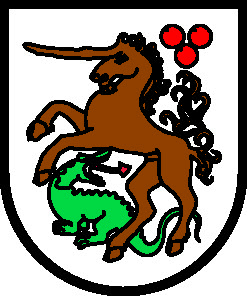
Ljutomer CITY COUNCIL
SLOVENIA
Municipality of Ljutomer, a typical Slovenian municipality with only 12,000 inhabitants, has in recent years become recognized primarily for its role that it plays in the field of sustainable mobility. This was achieved by SUMP (Sustainable urban mobility plan) preparation which was chosen among three of the best SUMP´s in EU (SUMP Award Contest 2012),
Municipality of Ljutomer was the only Slovenian municipality in 2011 taking partin the European URBACT II step towards the project “Active Travel Network”. In this project, involving 10 partner cities from Europe and the University of Graz, exchanged experiences to solve traffic issues in the field of sustainable mobility. In cooperation with the Ministry of Infrastructure and Spatial Planning, the project integrated public passenger transport and carried out activities in the field of sustainable urban transport plans.
Municipality of Ljutomer in 2013 and 2014 as an external partner participated in the international project Ch4llenge (IEE), which constitute an example of good practice in the preparation of a transport strategy, which in 2013 was declared one of the three best transport strategies in the EU. In 2015 Ljutomer as an external partner participated in the international project Travel Switch, which is integrated into the Municipality’s mobility plan to encourage walking and cycling.
italy
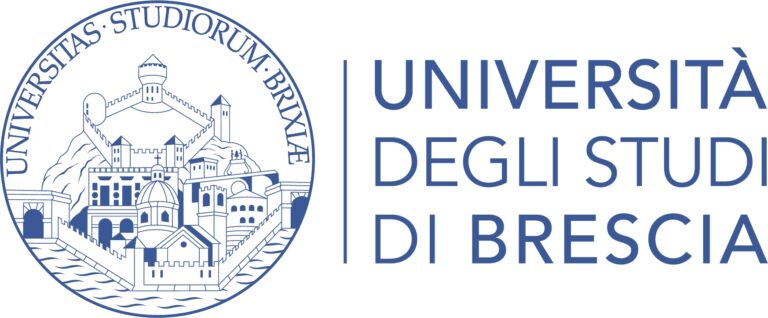
UNIVERSITY OF BRESCIA - DEPARTMENT OF CIVIL ENGINEERING, ARCHITECTURAL, ENVIRONMENTAL AND MATHEMATICS (UNIBS - DICATAM)
ITALY
The Department of Civil, Environmental, Architectural Engineering and Mathematics (Dipartimento di Ingegneria Civile, Architettura, Territorio, Ambiente e di Matematica – DICATAM) of the University of Brescia includes 50 professors and 26 researchers working in various fields of the civil engineering, including environmental engineering, architecture, transport engineering and urban planning.
The research group of “Urban Planning and Transport”, involved in 2ISECAP, deals with themes related to the city with staff working in the sectors of Urban Planning and Techniques and Transport. The two souls of the research group are Urban and Regional planning and Infrastructures and mobility systems. The Urban and Regional Planning research group deals with techniques and methods for planning and programming transformations of urban and territorial systems, of organizational structures and morphologies of human settlements, of tools and models useful for the evaluation of plan choices and related impacts on the environment and landscape. The Infrastructures and Mobility Systems research group deals, especially in the urban environment, with techniques, methods of planning, design and monitoring of sustainable infrastructures and mobility; of collective transport systems; road safety plans; mobility systems and infrastructures for vulnerable road users; methods for evaluating design alternatives; of innovative infrastructures and ITS technologies.
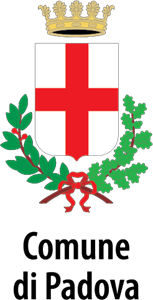
PADOVA COMUNE (PADOVA)
ITALY
The Municipality of Padova, has a long-standing experience in EU projects, particularly on urban planning, energy, environmental and sustainability issues, through the Environment and Territory Department and Informambiente Office. Back in November 2001 the Local Agenda21 office has been established. In the same year, Padova subscribed the Aalborg Charter and joined the Sustainable Cities Campaign, committing to setting up a participatory approach for urban sustainable strategies.
In 2010 the Municipality signed the Covenant of Mayors formal Agreement and in 2011 approved its SEAP, Sustainable Energy Action Plan, with a target year in 2020. The initial goal was to reach the minimum requirement of the CoM (-20% of CO2 emissions compared to the baseline, 2005). The 2017 monitoring (MEI) highlighted that a reduction of 37.5% had already been achieved.
Since 2017, the Environment and Territory Department has coordinated the LIFE project “Veneto ADAPT”. The project was aimed at developing and testing a coherent approach for enhancing the regional capacity to respond to the impacts of climate change.
In 2021, a SECAP – Sustainable Energy and Climate Action Plan – has been adopted by the City Council, updating the SEAP (which was outdated; target year was 2020) and aiming at reducing by at least the 55% the CO2 emissions, compared to the baseline (2005). The plan has been awarded by the Covenant of Mayors initiative as best action plan for the category of small-medium size Municipalities.
Since 2022, the Municipality of Padova has been included in the short list of 100 smart and climate neutral cities in Europe, committing to the achievement of climate neutrality by 2030.
SWITZERLAND

UNIVERSITY OF APPLIED SCIENCE WESTERN SWITZERLAND (HES-SO)
Switzerland
HES-SO is the largest university of applied sciences (UAS) in Switzerland and the second largest higher education institution of the country, with more than 21′,00 students and 28 schools in 7 cantons. It is organised in six faculties.
HES-SO collaborates closely with SMEs, and its R&D also extends to certain aspects of industrial-scale production. HES-SO undertakes research projects with a wide range of partners in Switzerland and abroad. HES-SO has been involved in European Framework Programmes since 1998. In FP7 HES-SO participated in 32 collaborative projects, including 3 as coordinator. In H2020 HES-SO are beneficiaries in 15 projects, covering the three Pillars of the programme. Energy is a key interdisciplinary thematic for HES-SO with five running H2020 projects in the field: RIBuild, ENTROPY, SIM4BLOCKS, HOTMAPS, GOFLEX.
In the project 2ISECAP, HES-SO will be represented by HES-SO Valais, through the Institute of Entrepreneurship and Management (IEM), Energy Management Unit. This interdisciplinary team is composed of engineers, economists, statisticians, geographer and social marketers conducting applied research.
IEM created the Energy Living Lab (ELL), an ecosystem of actors with the goal of facilitating the energy transition in the French part of Switzerland. The ELL is an effective member and member of the board of the European Network of Living Labs (ENoLL) based in Brussels. The institute has developed for already 10 years a strong Open Innovation methodology that permit the integration of the different stakeholders at the early stage of projects’ development.
The Living Lab method is applied in the energy field for already five years and allows the team to work on several topics such as energy efficiency, energy consumption, New Renewable Energy (NRE) and its social acceptance. Also member of the Competence Center for Research in Energy, Society and Transition (SCCER CREST) in Switzerland, the IEM Energy Management Unit can count on a federal support to communicate its work to a macro level. In parallel, the institute focuses its research on different themes such as innovation management (business models, open innovation, service design), human capital/resource management (entrepreneurship, coaching, leadership) and performance management like marketing and energy management.
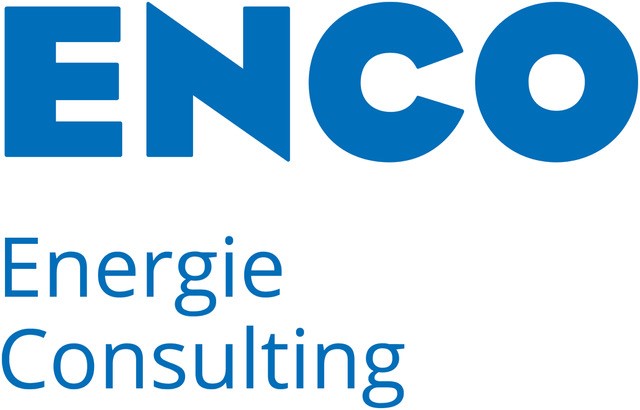
ENERGIE-CONSULTING AG (ENCO)
SWITZERLAND
ENCO Energie-Consulting AG is a Switzerland-based energy and climate consulting company, founded in 1982. It advises and supports cities and municipalities, policymakers, energy supply companies, private sector companies and end-user groups with designing and implementing sustainable energy and climate policies. A particular focus is on municipal energy management, renewable energy and climate resilience. ENCO is active in Switzerland, Europe and internationally.
ENCO has developed the Energiestadt/ Cité de l’Energie® (Energy City) / European Energy Award (eea)® Label in Switzerland and played a key role in adapting and introducing the label in other country-contexts, such as Romania, Serbia, Albania, and Colombia. For the last 30 years, ENCO has managed the national office and coordinated activities of cities’ networks, stakeholder groups and federations, such as the “Energiestadt/ Cité de l’Energie” Association (450 cities and municipalities), “Smart City – Switzerland”, “Swiss Eole” (wind power), and “Acceptance of Renewable Energy Technologies” in close co-operation with key federal offices and stakeholders at regional and municipal levels.
ENCO counts in a highly interdisciplinary team of experts in Environmental Policy and Engineering, Natural Science, Architecture and Urban Planning, International Affairs, Political Science, International Affairs and Energy Finance, among others, able to respond to a wide range of requests from public authorities, especially local governments, financial institutions, private sector companies and civil society groups at national and international levels. ENCO’s main partners are public and local authorities to which it provides strategic advice and technical consultancy for: initial reviews (including Greenhouse-Gas inventories) of local energy and climate policy, planning, financial deal-structuring, implementation and impact monitoring in Switzerland and internationally (Eastern Europe, Latin America, South East Asia, etc.). Based on its expertise and international best-practice, ENCO develops innovate, tailor-made concepts and solutions, facilitates and moderates multi-stakeholder engagement through participative co-creation processes to support the achievement of jointly set energy and climate targets.
ESTONIA
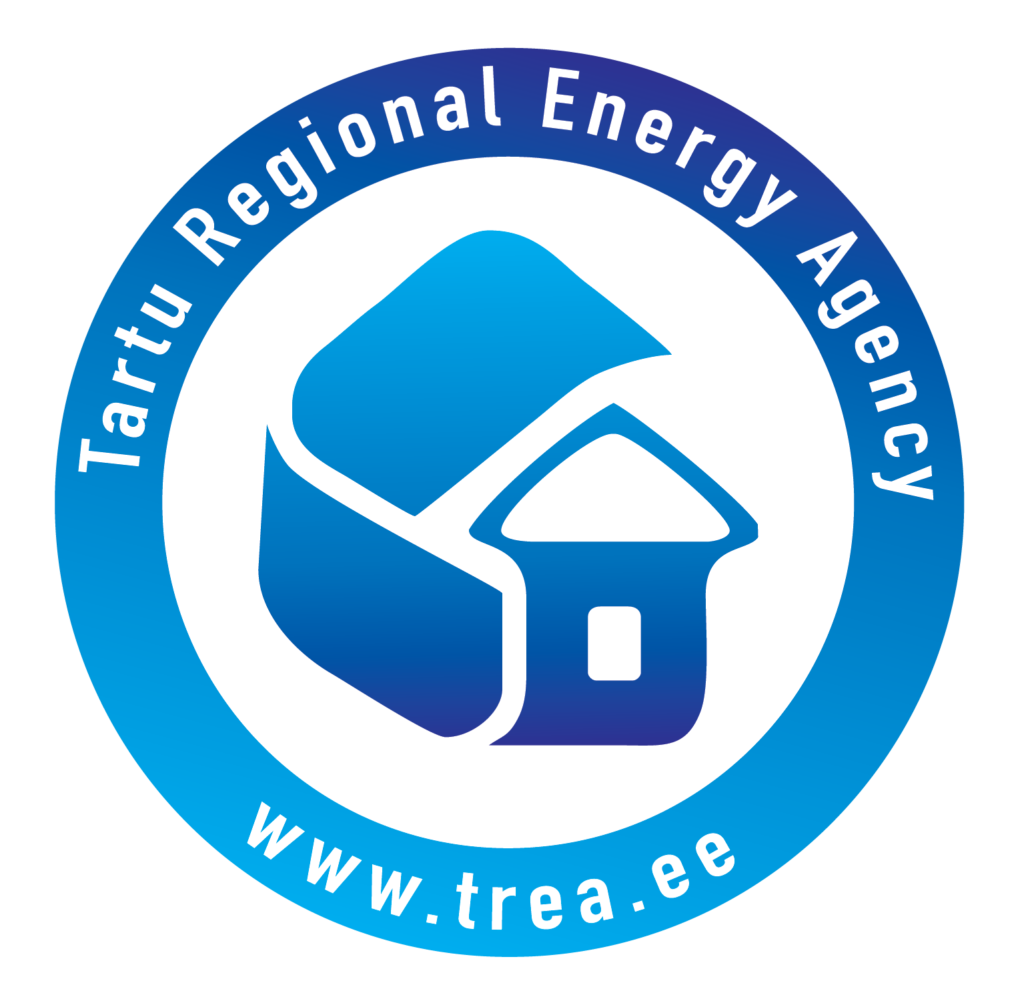
TARTU REGIONAL ENERGY AGENCY (TREA)
Estonia
Tartu Regional Energy Agency TREA is an energy agency in Tartu, Estonia, providing services to municipalities in South-Estonia. TREA consists experts on energy efficiency, energy planning, sustainable transport, energy renovation and energy communities.
TREA supports the energy transition of South-Estonia and is actively participating in international cooperation networks, introducing the latest examples of innovation from all over the Europe. TREA is Estonian supporter for Covenant of Mayors community.
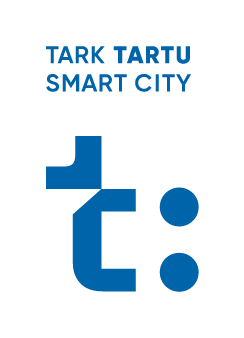
TARTU CITY
ESTONIA
Tartu is the 2nd largest city in Estonia and main hub in South-Estonia. The population of Tartu City is around 100,000 people and Tartu urban area with neghbouring municipalities is about 130,000 citizens. Tartu is Estonia’s education center with over 15 higher education institutions including two largest – Tartu University (est 1632) and University of Life Sciences.
Tartu is considered to be most livable city in Estonia. Tartu is a member of The Covenant of Mayors since 2014 and has been at the forefront of sustainability with some of the most ambitious goals in Estonia.
Tartu region embodies wisdom – here you will find one of the best universities in Europe and many top-level scientific institutions and research laboratories. Intelligent people generate smart ideas and that is the reason why start-ups and smart manufacturing companies are booming here.
Tartu is an innovative way thinking city where in 2000 was implemented 1st in the world a mobile parking, in 2003 a paperless governance, in 2005 1st e-elections in the world, in 2013 participative budgeting and many more things.
Mostly known as a university town, Tartu is also a site of industry. The food industry has traditionally been important for the town’s economy. In the beginning of the 21st century, many ICT enterprises and other high-tech companies (medicine, biotech, nano-technology etc.) have taken a foothold in Tartu. The university is one of the largest employers, which explains the large proportion of highly skilled professionals – researchers, professors, doctors.
There are approximately 300 employees in the city government of Tartu and it is operating under political leadership of a Mayor and 5 deputy Mayors. Overall the municipal sector employs over 6000. From the year 2021 Tartu’s municipal sector will be operating on nearly 100% renewable energy. The city has converted public transportation to biogas, is using only district heating in municipal buildings and is buying 100% renewable electricity from the beginning of 2021.
Tartu has been a keen participant in IEE, FP7, H2020 and INTERREG projects.
NETHERLANDS
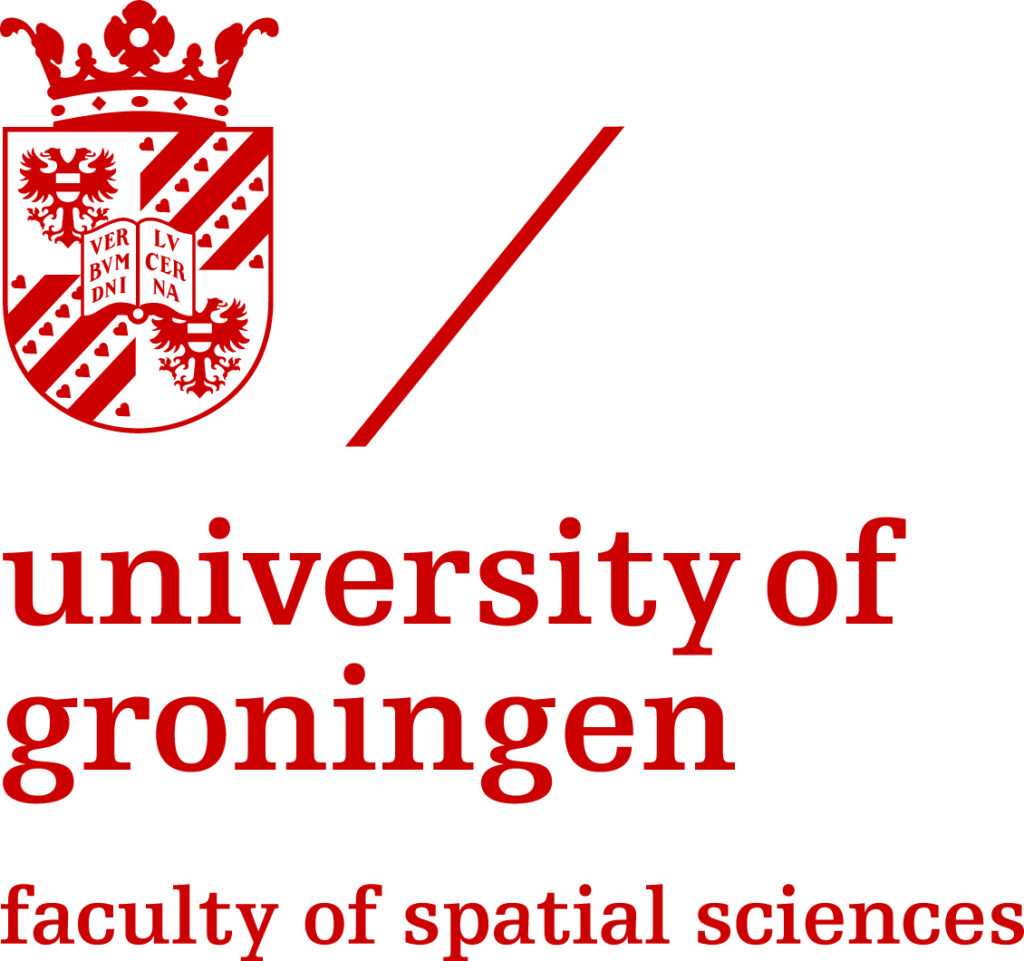
ROYAL UNIVERSITY OF GRONINGEN (RUG)
NETHERLANDS
The University of Groningen traditionally ranks among the 100 strongest universities world-wide. The University focuses on three main research themes: Healthy Ageing, Sustainable Society and Energy and is a founding partner of the Energy Academy Europe, now part of New Energy Coalition. The University’s Faculty of Spatial Sciences has extensive experience in projects on energy planning, sustainable urban management, spatial planning, social impact assessment, citizen engagement and social wellbeing. It is one of the founding partners of the International Urban Planning and Environment Association (UPE) and is extensively involved in international networks such as the Association of European Planning Schools (AESOP) and the International Association of Impact Assessment. Through its research mission “Towards Well-being, Innovation and Spatial Transformation” (tWIST), the Faculty of Spatial Sciences delivers a significant input to the University’s core research.
The Faculty’s research clusters on “Energy & Climate Change”, “Governance and Civic Initiatives” and “Liveable & Resilient Communities” encapsulate the Faculty’s focus on sustainable urban governance with a particular emphasis on institutional design, capacity-building, empowerment and engagement. Research, which has been extensively published in international journals such as Planning Theory and Practice, Environment and Planning (A-D), European Journal of Environmental Sciences, Energy Research & Social Science, Energy Policy, Cleaner Production, European Spatial Research and Policy, Geoforum and Population, Space and Place, among others.
Staff members of the Faculty are part of various (inter)national and regional networks on planning, environment and energy related issues. These networks include the International Urban Planning and Environment Association (UPE), the Association of European Planning Schools (AESOP), the Energy Academy Europe (Groningen), the Groningen Energy and Sustainability Programme (GESP) and the Groningen Energie Koepel (Groningen Energy Association).
DENMARK

Energy Consulting Network A/S Ltd. - (ECNET)
DENMARK
EC Network A/S (ECNet) is a leading Danish company in the field of sustainable energy. It was established in 2000. The mission of EC Network is to make a professional contribution to the dissemination of sustainable energy and environmental systems. The Company has been involved in numerous technical assistance projects in Europe and Asia as well as a significant number of EU research and promotion projects (H2020, IEE, FP5, FP6, FP7 etc.).
Of relevance to the 2ISECAP proposal ECNet has been involved in numerous projects aiming at developing and implementing sustainable energy action plans and projects at regional/local level. ECNet was involved in the recent INTENSSS-PA project as RLL facilitator and Communication leader focusing on integration of the regional living lab concept into Integrated Sustainable Energy Planning. Further, ECNet served coordinator of the IEE project ENNEREG on sustainable energy action in 12 EU regions (regional and local SEAPs and SEPs). Moreover, ECNet coordinated the previous IEE SEC-Tools project on elaborating a Toolbox for local authorities in New Member States in relation to local energy planning, and assisted Danish cities on SEAP development as part of the IEE Come2CoM project. In Denmark ECNet has assisted several municipalities in the local energy planning process.
It is also worth mentioning that ECNet has been involved in EU major initiatives like the Sustainable Energy Europe Campaign, ManagEnergy and Sustainable Energy Investment Forums (2016 – 2023) and from 2019 in the European City Facility. From 2012-2015 ECNet was responsible for arranging 45 ManagEnergy capacity building workshops around Europe on local sustainable development, including strategic energy planning, for local authorities in accordance with the requirements of the Covenant of Mayors Initiative (SEAPs).
